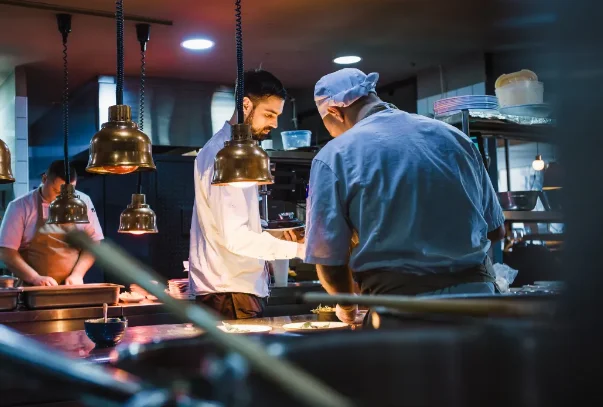Running a pizza restaurant can be immensely rewarding, but scaling it to achieve long-term success requires strategic planning and effective execution. Many restaurant owners need help maintaining food quality, ensuring consistent customer service, and managing operations efficiently as they grow.
This is where restaurant coaching becomes invaluable. With the right guidance, pizza restaurant owners can navigate these challenges and turn their business into a thriving enterprise.
This article will explore effective coaching strategies that can help pizza restaurant owners scale their businesses, focusing on the importance of operational efficiency, marketing, staff training, and customer engagement.
Understanding the Importance of Restaurant Coaching
Restaurant coaching provides business owners with expert advice and actionable strategies to enhance their operations and drive growth. A coach with experience in the restaurant industry can offer insights into common pitfalls and proven tactics to overcome them.
By focusing on key areas such as menu optimization, staff management, and customer satisfaction, a coach can help owners streamline their processes and improve their overall performance.
Operational Efficiency: Streamlining Processes
One of the primary challenges in scaling a pizza restaurant is maintaining operational efficiency. As the business grows, so do the complexities of managing day-to-day operations. Here are some strategies to improve efficiency:
Optimize Kitchen Workflow
The kitchen is the heart of any restaurant, and its efficiency directly impacts service speed and food quality. A coach can help identify bottlenecks in the kitchen workflow and suggest layout changes or equipment upgrades to improve productivity. Implementing a standardized prep list and training staff on time-saving techniques can also make a significant difference.
Inventory Management
Effective inventory management ensures that the restaurant always has the necessary ingredients without overstocking, which can lead to waste. A restaurant coach can introduce inventory tracking systems that provide real-time data on stock levels, helping owners make informed purchasing decisions.
Technology Integration
Leveraging technology can greatly enhance operational efficiency. Point-of-sale (POS) systems, online ordering platforms, and customer relationship management (CRM) software can streamline various aspects of the business. A coach can guide owners on selecting and implementing the right technology solutions.
Marketing Strategies: Attracting and Retaining Customers
Marketing plays a crucial role in scaling a pizza restaurant. Effective marketing strategies can attract new customers and retain existing ones, driving sustained growth. Here are some strategies to consider:
Branding and Positioning
A strong brand identity sets a pizza restaurant apart from competitors. A marketing agency for restaurants can assist in creating a cohesive brand image, including logo design, color schemes, and messaging. Consistent branding across all customer touchpoints, from menus to social media, helps build recognition and trust.
Social Media Marketing
Social media platforms offer an excellent opportunity to engage with customers and promote the restaurant. A marketing agency for restaurants can develop a social media strategy that includes regular posts, customer interactions, and targeted advertising. Sharing behind-the-scenes content, customer testimonials, and special promotions can boost engagement and attract new customers.
Local SEO
Optimizing the restaurant’s online presence for local search can drive traffic to both the website and physical location. This includes claiming and updating the Google My Business listing, ensuring accurate information on review sites, and incorporating location-based keywords in website content. A marketing agency can help implement these SEO strategies effectively.
Staff Training: Building a Competent Team
A well-trained staff is essential for delivering excellent customer service and maintaining operational efficiency. Investing in staff training can lead to higher employee satisfaction and lower turnover rates. Here are some training strategies:
Comprehensive Onboarding
A thorough onboarding process ensures that new hires understand the restaurant’s standards and expectations from day one. This includes training on menu items, customer service protocols, and safety procedures. Providing a detailed employee handbook can be a useful reference for new staff.
Ongoing Training Programs
Regular training sessions keep staff updated on new menu items, equipment, and procedures. These sessions can also address common issues and provide opportunities for team-building. Encouraging continuous learning helps employees stay motivated and improves their performance.
Leadership Development
Identifying and nurturing potential leaders within the team can benefit the restaurant in the long term. Offering leadership training programs prepares employees for managerial roles, ensuring a smooth transition as the restaurant grows. This can include training on conflict resolution, decision-making, and team management.
Customer Engagement: Enhancing the Dining Experience
Engaging with customers and providing a memorable dining experience is key to building loyalty and encouraging repeat visits. Here are some strategies to enhance customer engagement:
Personalization
Personalizing the customer experience can make guests feel valued and appreciated. This can include remembering regular customers’ names and favorite orders or offering personalized recommendations based on previous visits. A CRM system can help track customer preferences and interactions.
Loyalty Programs
Implementing a loyalty program rewards repeat customers and encourages them to return. This can be as simple as a punch card system or as sophisticated as a digital rewards program integrated with the POS system. Offering exclusive discounts, early access to new menu items, or special events can incentivize loyalty.
Gathering Feedback
Regularly seeking customer feedback provides valuable insights into what is working and what needs improvement. This can be done through comment cards, online surveys, or social media polls. Addressing feedback promptly and transparently shows customers that their opinions are valued and helps build trust.
Restaurant Tables and Chairs: Enhancing the Ambiance
The choice of restaurant tables and chairs significantly creates a comfortable and inviting dining environment. Here are some considerations for selecting the right furniture:
Comfort and Style
Choosing comfortable and modern tables enhances the overall dining experience. Consider the restaurant’s theme and decor when selecting furniture to ensure a cohesive look. Ergonomically designed seating can make customers feel more relaxed and likely to stay longer.
Durability
Restaurant furniture must withstand heavy use and frequent cleaning. Investing in high-quality, durable tables and chairs can reduce long-term costs by minimizing the need for replacements. Materials such as solid wood, metal, and high-grade plastic are popular choices for their durability.
Flexibility
Flexible seating arrangements can accommodate different group sizes and maximize the use of space. Consider tables that can be easily reconfigured or joined together for larger parties. Stackable chairs can also be a practical option for easy storage and floor cleaning.
Conclusion
Scaling a pizza restaurant business requires a combination of strategic planning, effective marketing, and operational excellence. Restaurant coaching can provide valuable insights and guidance to navigate the challenges of growth. By focusing on optimizing operations, implementing targeted marketing strategies, investing in staff training, and enhancing customer engagement, pizza restaurant owners can achieve sustainable success.
Additionally, choosing the right restaurant tables and chairs can create a welcoming ambiance that attracts and retains customers. With the right strategies and support, scaling a pizza restaurant business can be a rewarding journey.

Melody Roth, a seasoned blog writer with a passion for the delectable world of food, specializes in crafting mouth-watering articles on favorites like pizza and burgers. With years of experience under her belt, Melody serves up stories as tantalizing as the dishes she describes, making her an invaluable voice in the culinary blogging realm.

